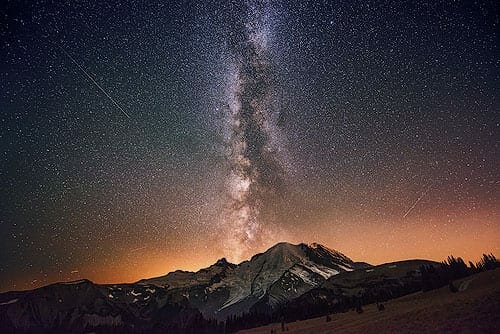 The following page provides personally tested and approved cameras and lenses for Milky Way, star, northern lights & night sky photography.
The following page provides personally tested and approved cameras and lenses for Milky Way, star, northern lights & night sky photography.
There are many options for the best camera & best lens for night photography.
It all depends on your own shooting style & price range preference.
Below, I’ve listed my favorites to get you started, along with in-depth photography guides that teach you the camera technique & settings for night photography.
Table of Contents
- Overview – Best Camera & Best Lens for Night Photography
- Nikon Full Frame Cameras for Night Photography
- Nikon Crop Sensor Cameras for Night Photography
- Nikon Lenses for Night Photography
- Sony Full Frame Cameras for Night Photography
- Sony Lenses for Night Photography
- Canon Full Frame Cameras for Night Photography
- How to 10X Your Learning Speed
Overview – Best Camera & Best Lens for Night Photography
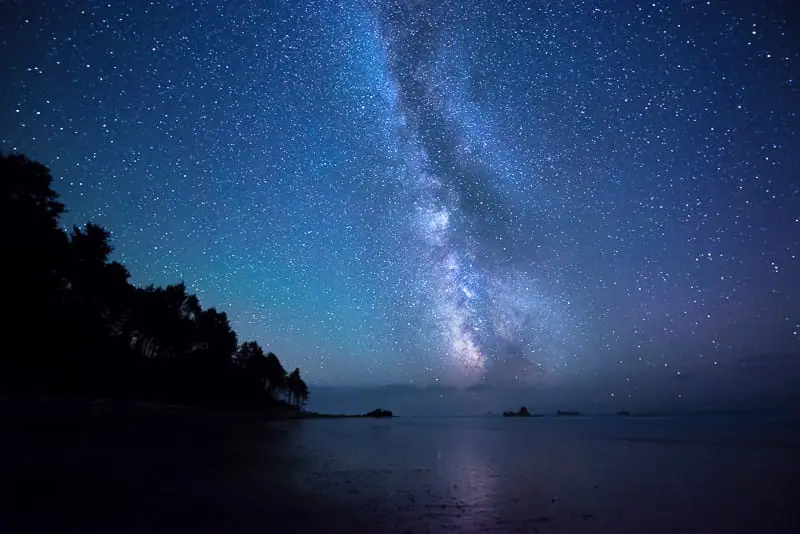
Full frame cameras and wide angle lenses offer the best quality for night photography.
Crop sensor cameras lack the dynamic range and low light image quality of full frame cameras.
I highly recommend the full frame options, but have provided some crop sensor options as well.
The linked guides teach the underlying technology & science of how camera sensors & ISO settings correlate to image quality and dynamic range.
You can also read my the following guides & learn how to take night sky shots of your own:
Nikon Full Frame Cameras for Night Photography
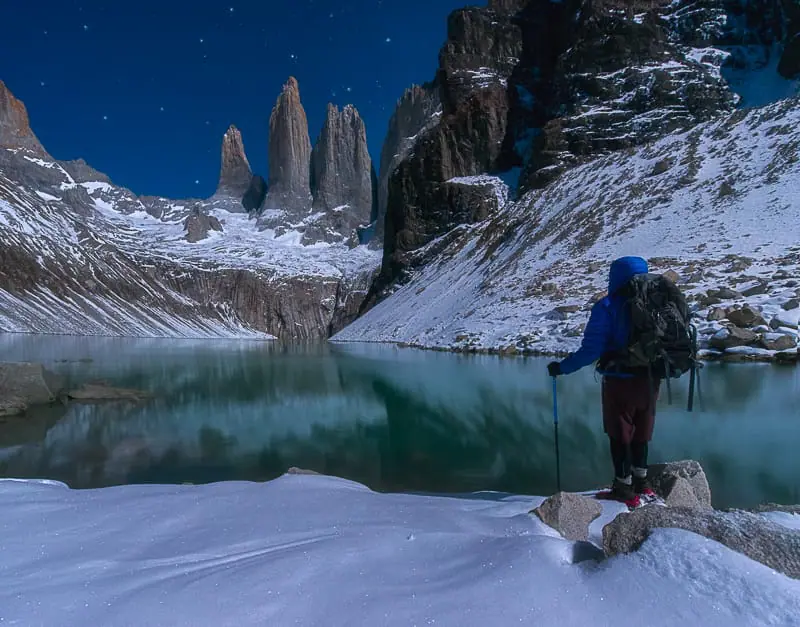
Nikon D810 (My Main Camera) – One fo the best night sky & landscape photography camera bodies made. A Tough metal body makes it perfect for mountaineering and backpacking.
I highly recommend this camera to all landscape photographers who expect their gear to perform at the top level and take a beating at the same time.
You can reference my Latest Night Sky Photos to see some of the images created with this camera.
Nikon D800 (My Backup Camera) – I feel the same about this camera as the D810. The dynamic range isn’t quite as good, but still all around a great camera.
I don’t carry this backup for backpacking / traveling. This is a backup camera for long distance photo trips. This used to be my main camera and has worked perfectly for the past 5 years.
Nikon D850 – After my D810 wears out, this is the next camera I will get. This is Nikon’s update to the D810.
I have shot with the following cameras. They work well.
That being said, if you can afford it, go with the D810 or the D850.
Nikon D750 – The next best option after the D850 and the D10 is the D750.
Nikon D610 – Another great option.
Nikon Crop Sensor Cameras for Night Photography
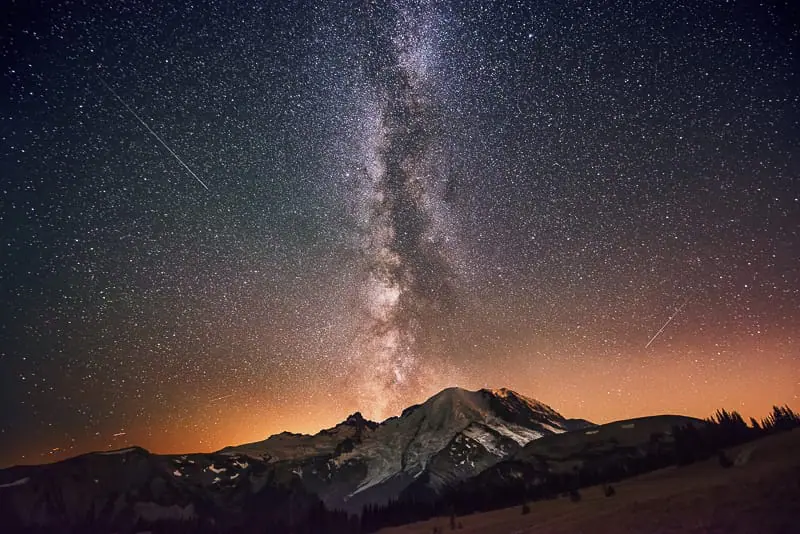
I would highly recommend investing in a full frame camera for night sky photography as well as landscape photography.
The difference in image quality, and reduced noise is well worth it.
It’s hard to recommend a crop sensor for night photography, but here is the best option.
Nikon Lenses for Night Photography
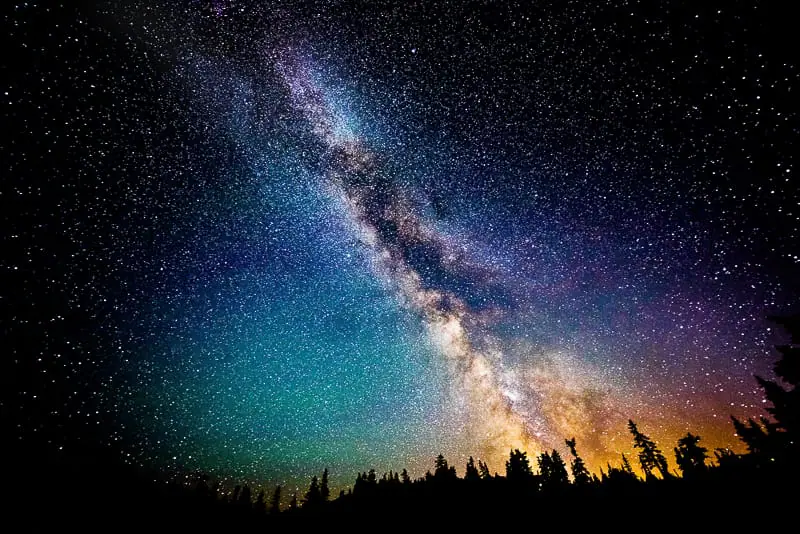
Nikkor 14-24mm f/2.8G – The best night sky & landscape photography lens currently made.
You can reference my Latest Night Sky Photos to see some of the images created with the Nikkor 14-24mm.
Nikkor 17-35mm f/2.8D ED-IF Autofocus Lens – Another great wide angle lens. If you have a choice, go with the 14-24, above.
Nikkor 16mm f/2.8 Fisheye – This is not a very versatile lens. It will work, but go with one one of the lenses above if you’re buying a new one.
Rokinon 14mm f/2.8 – Fantastic wide angle lens for the price. That being said, it does not even come close in comparison to the Nikkor lenses above.
Sony Full Frame Cameras for Night Photography
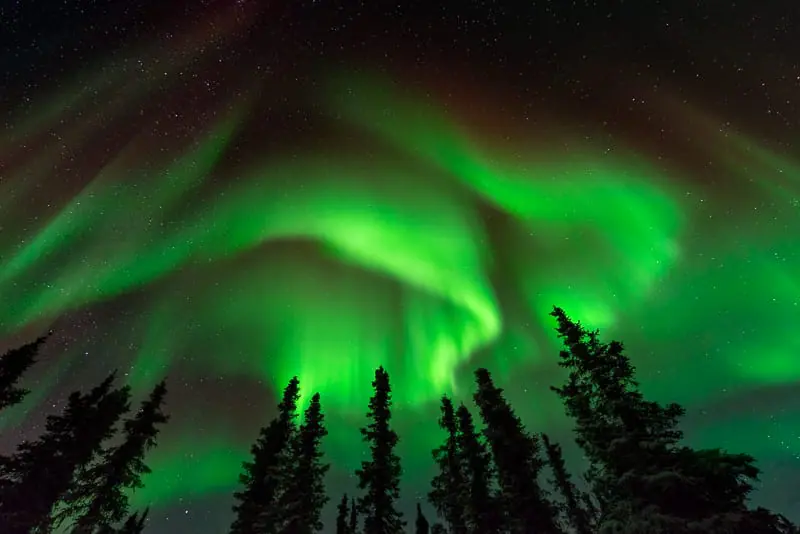
Sony and Nikon cameras have the best sensors for low light and night sky photography. They are also fantastic for landscape photography.
Nikon uses Sony sensors in the D810 and D800 mentioned above.
I don’t find Sony cameras to be as tough as Nikon Cameras, this is my main reason for not using them.
The second reason being that don’t want to use an adapter for the Nikkor 14-24mm required by Sony.
The technology and image quality is just as good on Sony Cameras.
Here are the two models I recommend for night sky photography.
Sony a7R III Mirrorless Camera
Sony Lenses for Night Photography
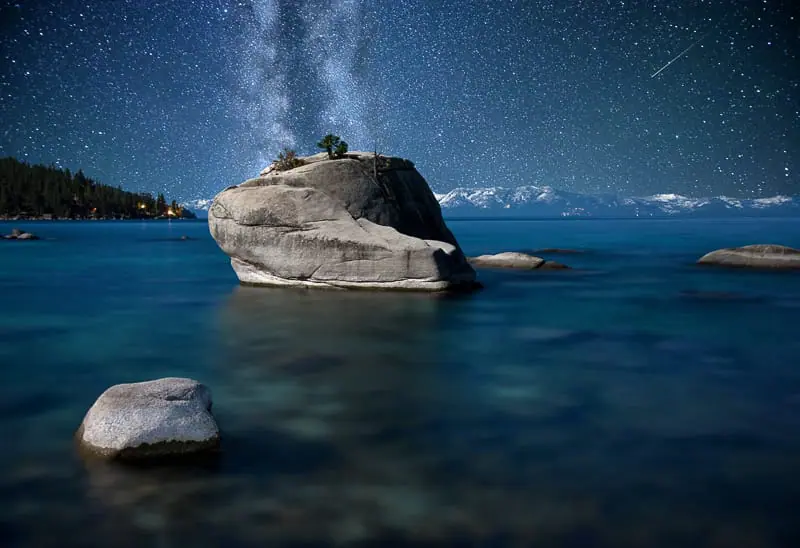
I’d recommend using an adapter with the Nikkor 14-24mm lens, over any of the following choices.
That being said, if you don’t want to spend 2000$ on a lens plus an adapter, these options work well too!
Zeiss Batis 18mm f/2.8 – If I were only taking night sky photos this would be my lens of choice.
Sony 12-24mm f/4 G – If I were taking landscape & night sky photos, this would be my lens of choice.
Sony 16-35mm f/4 ZA OSS – This is also a really good lens.
Canon Full Frame Cameras for Night Photography
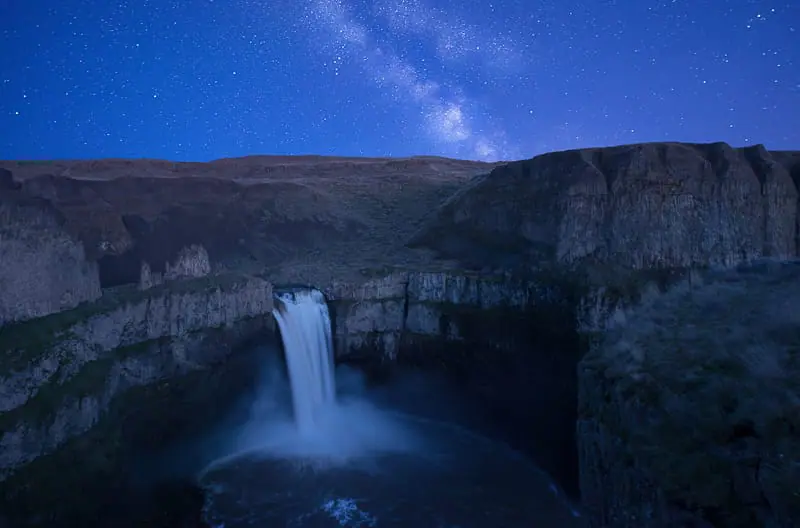
Even the best Canon Cameras do not perform very well in low light and have a reduced dynamic range compared to Nikon & Sony.
This has nothing to do with brands and everything to do with sensor science.
I do not recommend Canon Cameras for night photography.
That being said, if you already have a Canon, it doesn’t hurt to give it a try.
Here are the models that would work for night sky photography.
How to 10X Your Learning Speed
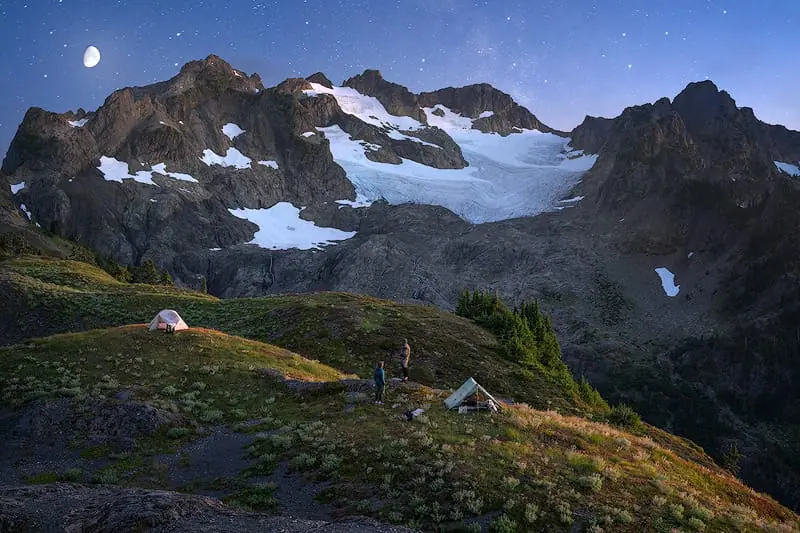
The best way to improve quickly is by learning firsthand from someone that’s optimized their skills, over a decade or more through trial and error.
You can’t read blogs and watch internet videos to do this.
I offer workshops & tours for all skill, fitness, and age levels.
Over a 3-day weekend, I can teach you everything I know, plus provide 1 on 1 feedback that will quickly improve your skills.
I’ve seen students learn more in a 3-day trip than they have in 20 years of trying to learn on their own.
Check out my workshops & tours, right here.